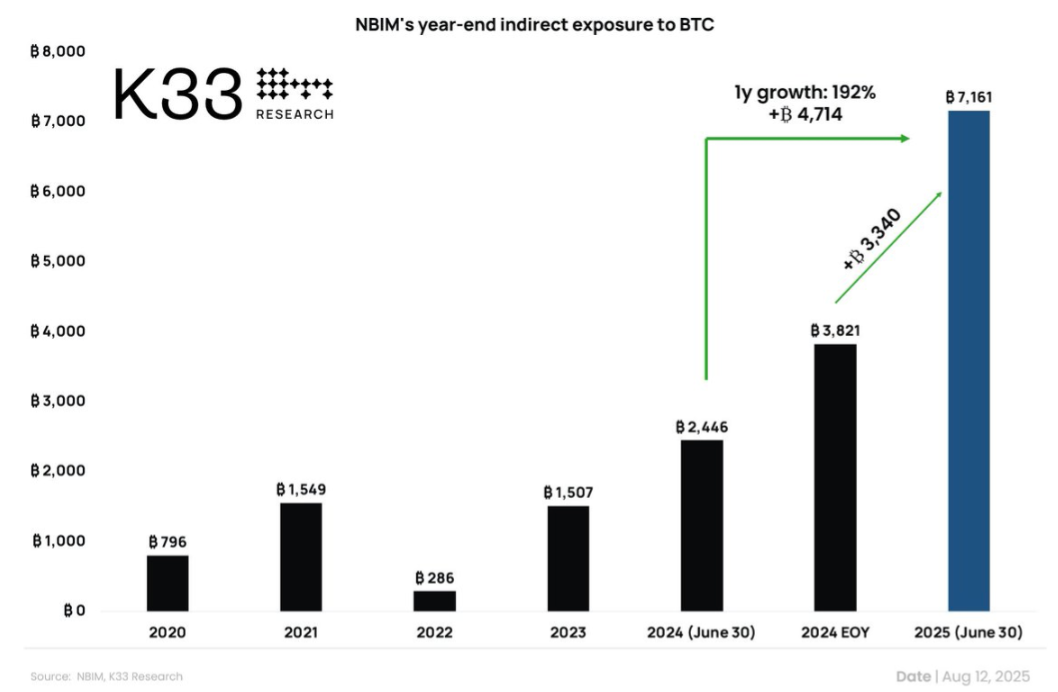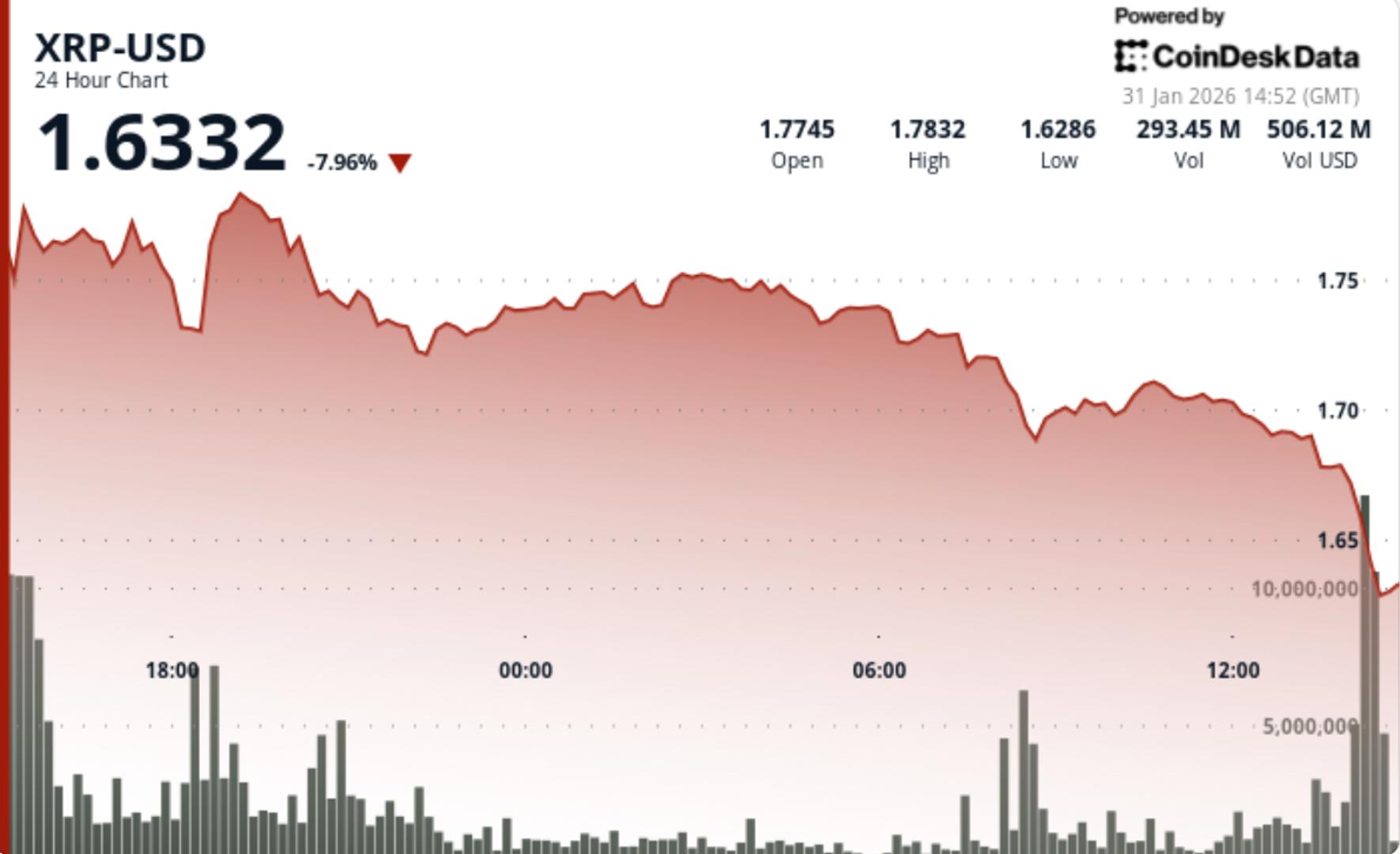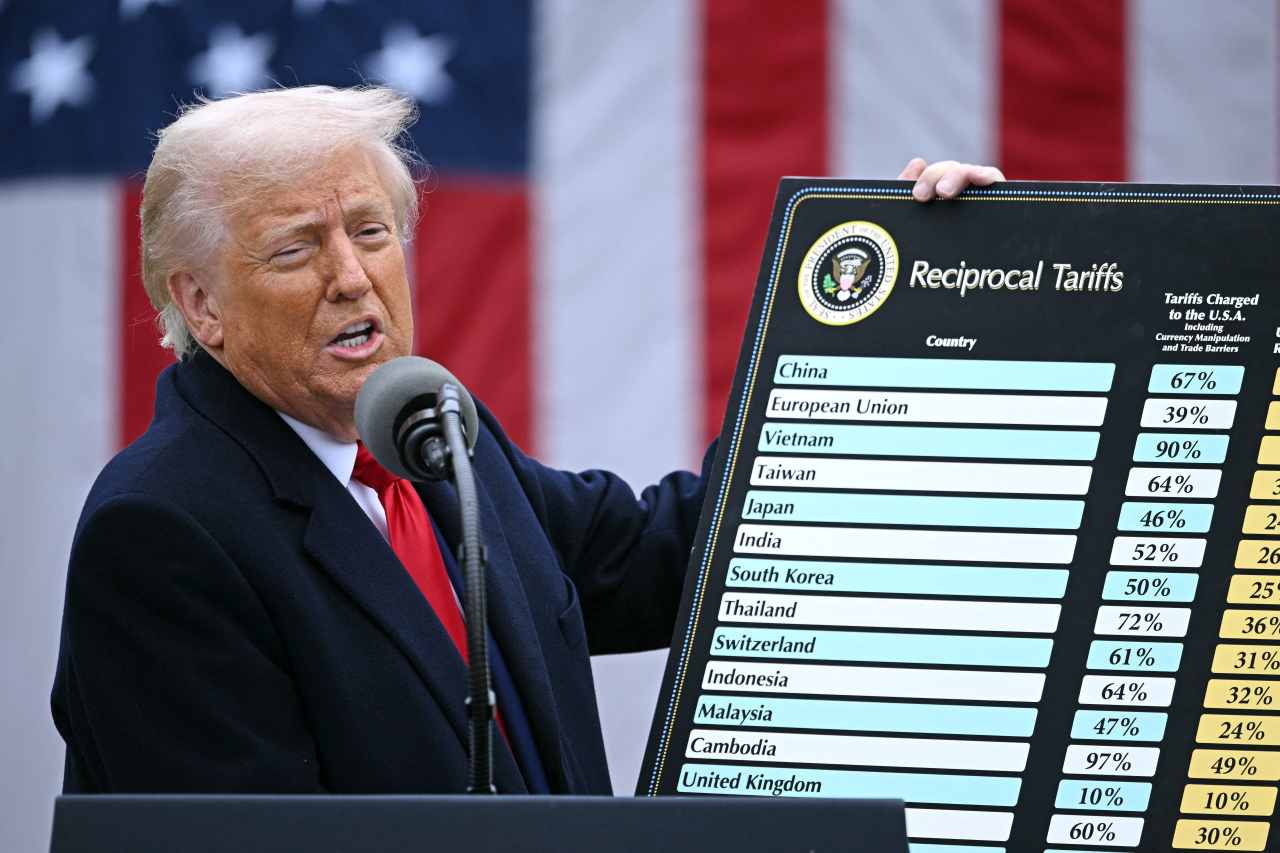Wall Street ramped up its exposure to bitcoin in the second quarter, adding positions not only in spot bitcoin exchange-traded funds (ETFs) but also in U.S. stocks closely tied to the cryptocurrency’s price, according to new filings with the Securities and Exchange Commission (SEC).
Brevan Howard nearly doubled its position in BlackRock’s iShares Bitcoin Trust (IBIT) during the second quarter, according to a securities filing. The macro-focused hedge fund held 37.9 million shares at the end of June, up from about 21.5 million in March.
The stake was worth more than $2.6 billion based on IBIT’s closing price on June 28, making Brevan Howard one of the largest reported institutional holders of IBIT alongside Goldman Sachs, which boosted its position to $3.3 billion in IBIT and Fidelity’s Wise Origin Bitcoin Trust (FBTC). The banking giant also held $489 million worth of the iShares Ethereum Trust (ETHA), according to a filing.
Goldman’s ownership of the ETFs isn’t necessarily a direct wager by its trading desk on bitcoin’s price; rather, it more likely represents positions held by Goldman Sachs Asset Management on behalf of its clients.
Brevan Howard, best known for macro trading, however, has long been active in the crypto space and operates a dedicated digital asset division called BH Digital. The unit manages billions in assets and invests in blockchain infrastructure, decentralized finance and related technologies.
Harvard, Wells Fargo and more
Other major IBIT investors include Harvard University, which reported a $1.9 billion stake in the ETF, and Abu Dhabi’s Mubadala Investment Company, which continues to hold $681 million.
In terms of U.S. banks, Wells Fargo nearly quadrupled its holdings of IBIT to $160 million, up from $26 million in the previous quarter, while maintaining a $200,000 stake in the Grayscale Bitcoin Fund (GBTC).
Cantor Fitzgerald also boosted its holdings to over $250 million while also increasing stakes in crypto-related stocks, including Strategy (MSTR), Coinbase (COIN) and Robinhood (HOOD), among others.
Trading firm Jane Street revealed holding a $1.46 billion stake in IBIT, which represents the largest single position in its portfolio after Tesla (TSLA) at $1.41 billion. It increased its stake in MSTR while reducing its holdings of FBTC.
Spot bitcoin ETFs like IBIT, which launched in January, allow investors to gain exposure to bitcoin’s price without directly holding the cryptocurrency. That structure offers traditional institutions an avenue to participate in the crypto market through familiar brokerage accounts and custodial arrangements.
Norway buys more
For some overseas entities, gaining exposure to bitcoin is easier through U.S.-listed companies that hold large amounts of BTC on their balance sheets.
That’s the approach being taken by Norway’s sovereign wealth fund, along with several other European state-backed investors, which are opting for equity stakes in crypto-adjacent firms rather than holding the crypto directly.
Norges Bank Investment Management (NBIM), the investment arm of the Norwegian central bank and the entity that manages the country’s $2 trillion pension fund, now indirectly holds 7,161 BTC, according to a new note from K33 Research. That figure is up 192% from 2,446 BTC a year ago, and up 87% from the 3,821 BTC it held at the end of 2024.

The largest portion of its exposure — 3,005 BTC — comes through shares in Strategy. The rest is spread across companies like Marathon Digital, Coinbase, Block, and Metaplanet. K33 also counted GME (GameStop) and several smaller holdings as contributing to the total.
Still, the exposure remains tiny in context. Norway’s fund owns stakes in thousands of companies across global markets, and the value of its bitcoin-linked investments is a fraction of its total holdings. At a current market price of $117,502 per BTC, the fund’s 7,161 BTC is worth around $841 million — or less than 0.05% of the $2 trillion portfolio.
The sharp increase over the past year may signal growing institutional comfort with the asset class, but it doesn’t represent a major strategic shift—yet.

 5 months ago
321
5 months ago
321













 English (US) ·
English (US) ·